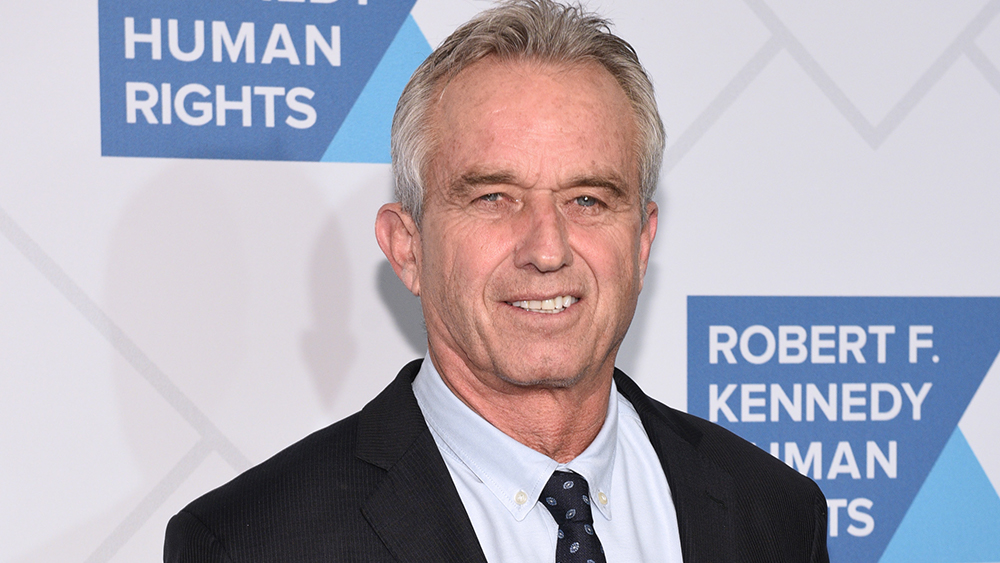Zimbabwe defies IMF, sells gold-backed digital tokens to stabilize volatile currency
05/17/2023 / By Ramon Tomey

Despite admonitions by the International Monetary Fund (IMF) against the practice, Zimbabwe has sold gold-backed digital tokens to stabilize its volatile currency.
According to ZeroHedge, the Reserve Bank of Zimbabwe’s (RBZ) sale of gold-backed digital currency “will allow small amounts of Zimbabwe dollars to be exchanged for the digital gold token.” This will enable more Zimbabweans “to hedge against currency volatility” – an issue the southern African country has been dealing with for more than a decade now.
The RBZ began selling the gold-backed digital tokens on May 8. Individuals were able to buy the tokens for a minimum price of $10 for individuals and $5,000 for corporations and other business entities.
ZeroHedge reported that Zimbabwe used almost 140 kilograms of its gold reserves to back the first round of sales for its gold-backed tokens. In a statement emailed on May 12, the RBZ said it received 135 applications valued at 14 billion Zimbabwe dollars ($43.7 million) for this round. A second auction of gold-backed digital tokens is set on May 18, it added.
“It appears the market is testing out the process before committing to converting significant [Zimbabwe dollar] reserves into gold tokens,” wrote ZeroHedge‘s Tyler Durden. “But still, it was a respectable first week.”
Earlier, Mining.com reported that Harare needed gold worth $100 million to bankroll the endeavor. Zimbabwe has 350 kilograms (12,346 ounces) of gold in its reserves, per RBZ Gov. John Mangudya.
“Any amount around or less than $100 million will be able to deal with our challenge in a big way,” remarked Persistence Gwanyanya, a member of the RBZ’s monetary policy committee. “We expect the [RBZ] to bring a respectable quantity that can stabilize the Zimbabwe dollar and boost demand.”
This was not the first time the African nation turned to the yellow metal to solve its currency crash. In June 2022, the RBZ introduced gold coins, both “as a store of value and to help support the local unit” of currency.
IMF incensed by Zimbabwe’s golden measure
Harare’s actions did not quite sit well with the IMF, which admonished the country against adopting a gold-backed digital token.
A spokesperson for the financial agency said in a May 9 email to Bloomberg: “A careful assessment should be conducted to ensure the benefits from this measure outweigh the costs and potential risks.” They cited “macroeconomic and financial stability risks; legal and operational risks; governance risks; and cost of forgone [foreign exchange] reserves” as reasons for Zimbabwe to hit the brakes on its plan.
Instead, the Washington, D.C.-based bank called on Harare to adopt “conventional measures” in addressing the Zimbabwe dollar’s decline in value. The spokesperson called on the country to maintain “a tight monetary policy stance” and expedite “the liberalization of the foreign currency market” by removing exchange rate restrictions.
But Mangudya defended his country’s decision, saying: “The issuance of the gold-backed digital tokens is meant to expand the value-preserving instruments available in the economy, enhance divisibility of the investment structures and widen their access and usage by the public.”
According to Durden, Zimbabwe’s reliance on the yellow metal “greatly annoyed the IMF, who may lose [its] debt-driven control over the country should this plan be successful.” (Related: IMF trying to bribe Egypt away from BRICS with new loans.)
GoldReport.news has more stories about Zimbabwe and other nations adopting gold.
Watch Holly Seeliger elaborating on Zimbabwe’s move to issue digital gold tokens as a hedge against inflation below.
This video is from the Zoon Politikon channel on Brighteon.com.
More related stories:
Zimbabwe central bank announces gold currency to combat inflation.
Zimbabwe needs $100 million in gold to support ambitious digital currency plan.
Sources include:
Submit a correction >>
Tagged Under:
big government, Bubble, currency crash, currency reset, devaluation, digital token, gold-backed token, International Monetary Fund, market crash, money supply, Reserve Bank of Zimbabwe, risk, Zimbabwe, Zimbabwe dollar
This article may contain statements that reflect the opinion of the author
RECENT NEWS & ARTICLES
COPYRIGHT © 2017 BIG GOVERNMENT NEWS





















